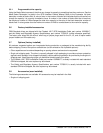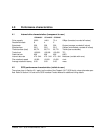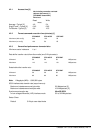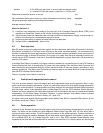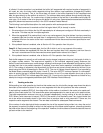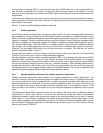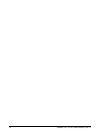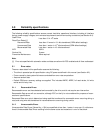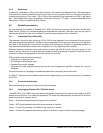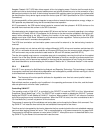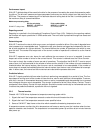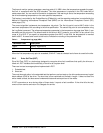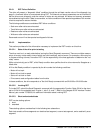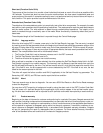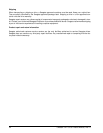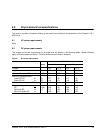
18 Cheetah 10K.7 SCSI Product Manual, Rev. D
5.1.3 Seek errors
A seek error is defined as a failure of the drive to position the heads to the addressed track. After detecting an
initial seek error, the drive automatically performs an error recovery process. If the error recovery process fails,
a seek positioning error (Error code = 15h or 02h) will be reported with a Hardware error (04h) in the Sense
Key. Recoverable seek errors are specified at Less than 10 errors in 10
8
seeks. Unrecoverable seek errors
(Sense Key = 04h) are classified as drive failures.
5.2 Reliability and service
You can enhance the reliability of Cheetah 10K.7 SCSI disc drives by ensuring that the drive receives ade-
quate cooling. Section 6.0 provides temperature measurements and other information that may be used to
enhance the service life of the drive. Section 8.3 provides recommended air-flow information.
5.2.1 Annualized Failure Rate (AFR)
The production disc drive shall achieve an AFR of 0.62% when operated in an environment that ensures the
HDA case temperatures specified in Section 6.4 are not exceeded. Short-term excursions up to the specifica-
tion limits of the operating environment will not affect AFR performance. Continual or sustained operation at
case temperatures above the values shown in Section 6.4.1 may degrade product reliability.
Estimated power-on operation hours means power-up hours per disc drive times the total number of disc
drives in service. Each disc drive shall have accumulated at least nine months of operation. Data shall be cal-
culated on a rolling average base for a minimum period of six months.
AFR is based on the following assumptions:
• 8,760 power-on hours per year.
• 250 average on/off cycles per year.
• Operations at nominal voltages.
• Systems will provide adequate cooling to ensure the case temperatures specified in Section 6.4.1 are not
exceeded.
Drive failure means any stoppage or substandard performance caused by drive malfunction.
A S.M.A.R.T. predictive failure indicates that the drive is deteriorating to an imminent failure and is considered
an AFR hit.
5.2.2 Preventive maintenance
No routine scheduled preventive maintenance shall be required.
5.2.3 Hot plugging Cheetah 10K.7 SCSI disc drives
The ANSI SPI-3 (T10/1302D) document defines the physical requirements for removal and insertion of SCSI
devices on the SCSI bus. Four cases are addressed. The cases are differentiated by the state of the SCSI bus
when the removal or insertion occurs.
Case 1 - All bus devices powered off during removal or insertion
Case 2 - RST signal asserted continuously during removal or insertion
Case 3 - Current I/O processes not allowed during insertion or removal
Case 4 - Current I/O process allowed during insertion or removal, except on the device being changed



